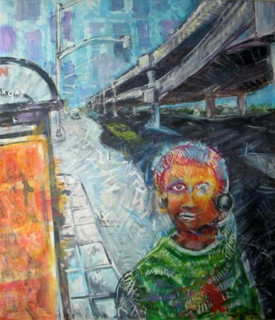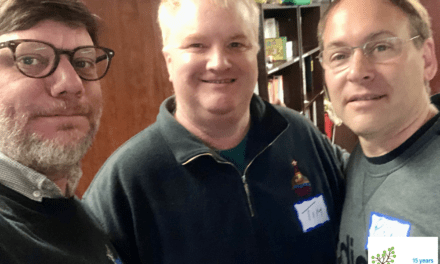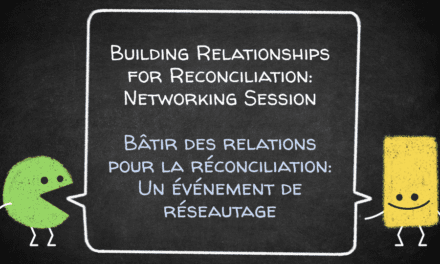By Melanie Stonebanks
The unexamined life isn’t worth living. – Socrates, 450 BC
A few weeks ago, I wrote about my early teaching experiences in inner-city Montreal. This entry builds on that previous post and will hopefully contribute to the current day understanding of the role of critical literacy in the classroom or the lack there of. It will lay bare my attempts, fraught with many mistakes and omissions, to bring into the classroom a critical pedagogy lived out through the day to day circumstances of a teacher and her students struggling with the turmoil and perplexity of a newly implemented curriculum. Due to countless discussions with my husband, whom you may have met here, I was well aware of the underpinnings of what critical pedagogy was and what it was supposed to look like in a classroom setting. But like so many others in the teaching profession, it was one thing to know what it was but to have the courage to enact it was a whole other matter.
The Context
In order to be able to visualize the upcoming narratives more accurately, it is important that a setting of time and place in history be offered for the reader. The two stories (one in this post and one in a subsequent post) unfold at one point or another in the decade spanning from 1993-2003 at one of the four public urban/inner-city schools where I worked in Montreal, Québec. All my former schools were comprised mainly of children whose parents were considered to be recent immigrants to Canada and due to their economic situation most were situated below the poverty line.
It was not always easy but for certain it was always worth it. I would not trade in my years teaching in these schools for anything. It is due to my time engaged with my young students that have brought me farther along in my understanding of what it truly means to be a teacher. It is a journey that is only still just beginning. As I write, reflect and reflect some more on the narratives you are about to read, I along with you gain a deeper and more profound understanding of the awesome effect critical pedagogy and critical literacy can have on those that become woven into its fabric. I add my piece to the quilt and encourage those that read along with me, to add their stories and pieces as well.
“Dear Prime Minister”
March 2003 marked the beginning of Gulf War 2. We sat at home around the television and I wept. As I watched the “Shock and Awe” of a city bombed and blasted into oblivion, I cried for the children, for the injustice, and I have to admit for the power bloc to which I was a member of for life. I felt as though we were living in a world gone mad, where a life didn’t equal a life, where the slaughter of innocent people was brushed off as unfortunate but necessary in order to take control of a country and the oil fields that permeated its land. Where family members expressed that it all wasn’t too bad as American technology would improve oil extraction efficiency.
I wondered how I would deal with this tomorrow in class. How could I ever be as strong as someone like Jane Elliot, who in the aftermath of the Martin Luther King assassination, had taught her class what it felt like to be discriminated against simply due to something as out of your control as the colour of your eyes or skin. Her controversial risk taking, and I believe an example of true critical pedagogy in action, “blue-eyed/brown-eyed exercise” was now a staple lesson in university education classes but at the time in the 1960s, her progressive and unconventional teaching brought her negative reactions from co-workers, community members and people across the United States.
I have heard time and again people say that if they had been there, they would have stood beside Ghandi, Martin Luther King or Rosa Parks. I say “No way!” It is much easier to ease one’s conscience and say in hindsight that you would have been there but in reality, it takes a very special person who can stand up to the pressures of a system so much larger than you and one that is pushing so ardently and relentlessly against you (Stonebanks, 2004). Needless to say, I was not this type of person and was at a loss to know what I would do the next day in class with my students. So I took the easy way out and waited to see what would happen.
The following morning, the classroom was a buzz. It was clear that most had spent a great deal of time watching the same images and news reports that I had in my home. As they entered the classroom and found their seats, I sat back and simply let them talk. They shared conversations that had most likely begun in their homes and their variations of what their parents thought and felt about the invasion. I continued to wait, to give them space, part of me knew that they needed time to unload all that they had inside them, the other part of me waited because I still didn’t know what I would do next.
And then it happened, one of my students put up her hand and called out to me “Mrs. Stonebanks, I’m afraid. What if they come and bomb my house? What do I do?” It wasn’t a question that I was expecting but it made sense that children would be worried about the same horror potentially affecting them especially considering that the vast majority did not come from power bloc backgrounds and have probably heard more nuanced and factual comprehensions of Western foreign policy. So as the class quieted down, we took it from there. In the safety of the classroom family, open and honest discussions could be held about what we were thinking, feeling, fearing, what we understood and what we didn’t. I was careful not to promote my own personal agenda or forward my beliefs of what the invasion was based on but what I did was allow them a space to deliberate and offer multiple perspectives to broaden their understanding of each other and the crazy world they were living in.
Part way through the conversation, one of the students asked which countries made up the invading forces, “The coalition of the willing”. When asked whether Canada was going to join in on the invasion, I told them that we were not. That our Prime Minister, Jean Chrétien, had been reported saying, “that forcing a regime change is not desirable. Many leaders in the world are not his friends, but, he adds, only the local people have the right to change government. “If we change every government we don’t like in the world where do we start? Who is next?”
The students decided that they would like to express what they were feeling about the invasion and Canada’s role. Many of them were still fearful that Canada and they themselves would be implicated and hurt in some way or another. Then an idea came to me. One that would give them a voice, a sense of security and a feeling that there was an audience who would be willing to listen to what they were thinking and dealing with at this moment in history. And one that stood in sharp contrast to the direction that my colleagues were taking in having their students write letters of support to soldiers already serving in Afghanistan. They would write a letter to the Prime Minister, the right honourable Jean Chrétien. I put forward my quick thinking idea and they loved it.
Constructivism? Probably not. But I was reminded of the fact that Joe Kincheloe, noted critical pedagogue, would often repeat to teachers in graduate classes when they felt overwhelmed by an anti banking model of teaching that being a critical pedagogue didn’t mean that you stopped being a teacher; that you stopped forwarding ideas. It seemed to fit exactly what was needed at the time. And by week’s end, twenty-eight letters, including one of my own explaining the impetus for the writing campaign, were mailed away to Ottawa.
Reflections on “Dear Prime Minister”
In no way do I feel that this incident is to be viewed as revolutionary, ground breaking or even an act of passive resistance. There was no risk involved in a Canadian class writing letters to a government who was opposed to the invasion of Iraq. I skimmed all the pieces of writing quickly before sealing them in the large brown envelope. They had been peer edited for fluency, clarity and basic grammar and spelling but the content of each letter was left up to the person who had penned it. They were free to express whatever an eleven or twelve year old wanted to share. Out of the twenty-eight letters that my class sent, twenty-seven of them were in support of Canada’s position of not joining the invasion in Iraq.
Had I been teaching in the United States at the time, would I have taken the risk to let my students write these types of letters to the President, free from my interference of what position to take on the matter or even still, did I have them send copies of their opinions to the United States government? No, I would not and no, I did not. Again, bound and gagged by fear of a system that seemed to call all the shots in one’s economic and career advancement, I spent most of the time keeping under the radar. I was not brave. I was not a radical leader. But when a large package from the Prime Minister’s office arrived for my class which included a letter of response to our campaign, thanking us for our words and thoughts and with it was a signed photograph of Jean Chrétien, the excitement and smiles on the faces of my students assured me that it was alright. I hadn’t started a revolution but I had given these children a forum for others to hear their voice and people had indeed listened.
End note
This fall, as my husband and I were hustling through the Toronto airport to catch a connecting flight home, we walked past a gate and there standing waiting for his own flight was Jean Chrétien. My husband immediately dropped his bag and went over to shake his hand. What followed was a lengthy and highly animated conversation between a former Prime Minister and two delighted supporters. Between photographs and many laughs, I was able to recount the story of our letter writing campaign to his office. It seemed that being able to share this classroom experience with the man to whom the letters were addressed allowed me to understand yet again, the importance of engaging and supporting your students in authentic literacy lessons that come to us from the teachable moments that life brings our way whether we are ready for them or not.





